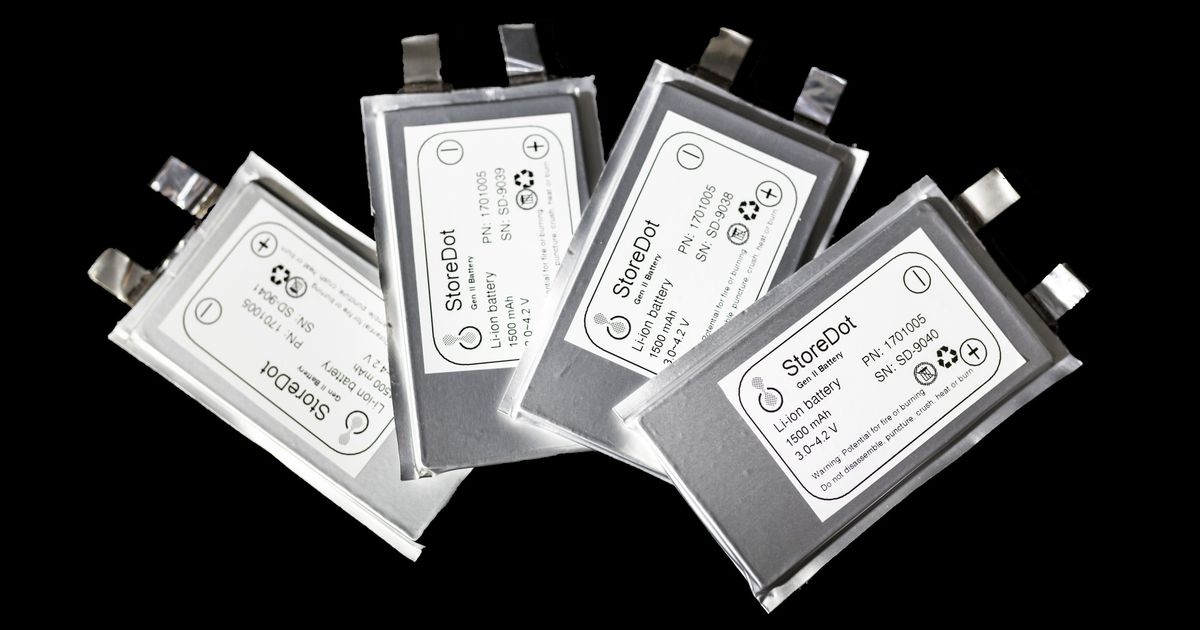
Start a conversation about electric cars, and it’ll likely take less than five minutes until someone asks about charging times. Yes, the charging times for electric vehicles are still far from ideal — typically, it will take more than an hour to fully charge an electric car at a commercial — but this might improve soon, thanks to Israeli startup StoreDot.
StoreDot is working on batteries for electric vehicles of all kinds, including e-scooters and cars, that charge in just five minutes. On Tuesday, the company announced it now offers engineering samples of its five-minute charge batteries.
The sample cells, produced by China’s EVE Energy, are different from traditional batteries as they have metalloid nano-particles instead of graphite in the cell’s anode. This, StoreDot claims, is a “key breakthrough in overcoming major issues in safety, battery cycle life and swelling.” Further in the future, StoreDot plans to use silicon (instead of germanium) for these nano particles, which should make these batteries a lot cheaper.
In Dec. 2019, StoreDot demoed its batteries on an e-scooter (see video below). But the next step, the company says, is to move onto electric cars.
[embedded content]
“Today’s announcement marks an important milestone, moving XFC for the first time beyond innovation in the lab to a commercially-viable product that is scalable for mass production. This paves the way for the launch of our second-generation, silicon-dominant anode prototype battery for electric vehicles later this year,” Dr. Doron Myersdorf, CEO of StoreDot, said in a statement.
An electric car that charges in five minutes could drastically reduce queues at electric charging stations and all but eliminate range anxiety, which is currently a part of owning an electric vehicle. But it’ll take some time until we get there.
Charging a car battery that fast requires chargers with more power. According to The Guardian, StoreDot thinks it can deliver 100 miles of charge to a car battery in five minutes in 2025 using existing infrastructure. That’s nice, but not that far off from what Tesla can do today with its V3 SuperChargers.
StoreDot’s investors include Daimler, BP, TDK, and Samsung.
Other companies, including Tesla Motors and Enevate, are developing fast-charging batteries. But the way from engineering samples from mass scale production could be a long one. Tesla CEO Elon Musk recently identified manufacturing battery cells at scale as a complex and important problem.
